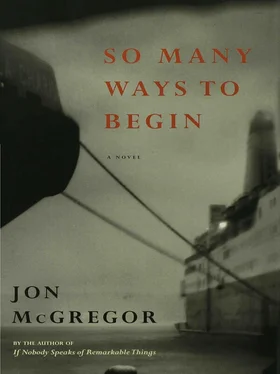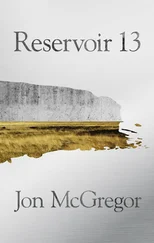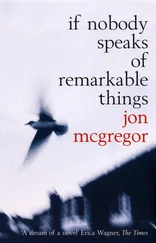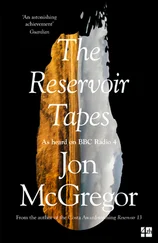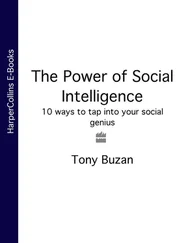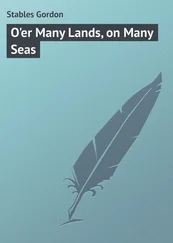36 Catalogue from museum exhibition, 'Refugees, Migrants, New Arrivals', 1975
The exhibition had been Anna's idea, but the senior staff gave it to David to take charge of, allocating him a budget and a month away from usual duties, telling him this was his opportunity to live up to what they had thought was his earlier promise. The Director made it clear that he wasn't entirely in favour of the form of social history the project would entail; but, as he conceded, it was becoming increasingly fashionable in certain circles and would do the image of the museum some good at a challenging financial time.
It wasn't difficult to find material. He did a series of presentations at social and religious centres — the Irish on Stoney Stanton Road, the Ukrainian on Broad Street, the Polish on Whitefriars, a mosque, a synagogue, the Sikh temple which had taken over the old Bamba Nightclub explaining the nature of the project, inviting participation, and his office quickly filled with boxes of loaned material, photographs, interview tapes, lists of people still to visit. This project is about the journeys you or your parents made to come to Coventry, he told them, the ways you remember those journeys, and the ways you remember the places you or your parents came from. He wasn't surprised by the number of responses he had to these presentations. He'd learnt, working at the museum, how many people wanted someone to tell their family's story to, how often the children of people who died would bring their parents' possessions to the museum to be archived or put on display, assuming that because these objects had belonged to someone who was no longer alive they would naturally take on a historical importance, assuming that the words museum and mausoleum were somehow the same.
He wasn't surprised by the interviewees' eagerness to loan him their few treasured keepsakes — the watches, the framed photographs, the religious artefacts — trusting him to keep their last attachments to a lost home safe, pushing them gladly into his arms. But what he hadn't quite been expecting was just how readily people held these things to hand, arranged together in the alcoves of their front rooms, or across a chest of drawers in a bedroom, or filling a glass-fronted cabinet in a kitchen, like miniature museums of their own. He interviewed, and was offered material by, people from all across Europe, from India and Pakistan and Bangladesh, from Vietnam, from Africa and the Caribbean. He interviewed people from Ireland, Scotland, Wales, from Sunderland and Southport and Somerset, people who had at some point come to Coventry in search of work and ended up staying. And he found himself hoping that when people contacted him from the Irish Club one of them might start by saying so I left home when I was a young woman, heading for London, looking for domestic work. I came over on the night boat. I had to leave London just before the war ended, on account of a sort of disagreement with my employers. He wondered how that would feel, to hear the beginnings of that particular story, to be able to hear it out to the end.
They based the exhibition around a map of the world, with Coventry at the centre illustrated by an image of the three spires, and with red threads reaching out to each of the countries the interviewees had travelled from. At the end of each thread they placed a photograph of the interviewee, or of one of the objects which had been loaned for the exhibition. It took Anna and him three evenings just to put the map together, staying behind while the rest of the staff went home, passing each other scissors and paste and Letraset, talking and disagreeing about which images to use. It took them another two weeks to finish the rest of the display material, putting it together down in the conservation room, spreading the work across the wide wooden desks while they selected the best extracts from the transcribed interviews, the most relevant artefacts, the clearest images.
Sometimes, when they had finished for the evening, packing the uncompleted work away, they would stay there for a while, leaning against the table, talking about things other than work. Anna told him about her wedding anniversary, and he asked what her husband was like, what he did for a living. Chris had gone straight to a job at the car-works when they'd left school, she told him, working on the same line as his father, getting used to working long hours for good money until they closed the factory after a round of strikes. It was the worst time really, she told him, it was only a year after we'd got married and we didn't know what we were going to do. She asked him again about Eleanor, and he said well, she's better in a way, you know, with the medication, but she's still not right, and she said oh that's awful, that's so sad, how do you cope? Once she said do you ever regret it? Getting married, I mean. Saying sorry sorry as soon as she'd said it, looking away from him, picking up her bag. Saying sorry only sometimes I wonder.
She was younger than him but he only ever noticed when she said things like that, when she seemed to be asking his advice, talking to him like an older brother. There were only six or seven years between them, and even that didn't seem as much as it once had. She had dark hair, tightly curled, cut to her collarbone. She had a small flat nose, and dark eyes, and she held her hand to her mouth when she spoke, as if she was afraid of letting her teeth show. She was tall. She was slimmer than Eleanor had lately become. They talked. That was all. They worked together, and while they were working they talked.
But one evening she touched him, for the second time, and he didn't pull away or say anything to stop her. It came from nowhere, a lull in the conversation, her hand drifting to the back of his head with her eyes fixed firmly on his, her fingers trailing down through his hair to the expectant skin on the back of his neck. She said sorry, as if it had been an accident, and for some reason he said sorry too and they said no more about it, and he tried to forget the feel of her long fingers, the delicate scratch of her fingernails across his traced and tingling scalp.
They'd finished all the displays, and were going over the layout plans, disagreeing over the need for additional text and trying to work out where to put the model steam engine a Russian man had been very keen to loan. They were both leaning over the desk, the papers and designs spread across it, the glare from the desk lamp getting harsher as the evening quickly darkened outside. He was saying I'm not sure about all this Anna, maybe we should look at it again tomorrow, and then there were her fingers, trailing down to the back of his neck.
And all that happened next was he looked at his watch and stood away from the desk, turning on the main overhead light and saying I think we'll take another look in the morning. That far corner looks like it will be too cramped, visitors will be squeezing past each other. And all she did was shrug, smiling, starting to tidy away the papers from the desk. Okay, she said with her back to him. See you tomorrow, she said. He walked away, and when he got halfway down the corridor and turned back to look through the open door she wasn't looking at him. She was marking something on the floorplan, running her fingers up and down the back of her head, through the dark tangle of her hair.
It was a popular exhibition, one of the most popular of the year. Coventry's population had been growing rapidly for years, tripling even between the turn of the century and the war, so there was no shortage of people who had a story of arrival, or who had grown up hearing their parents' stories, or who could in some way relate to the themes of being a stranger in a new town, making a new life, holding on to the few fragile reminders of home. Even Anna's husband Chris turned out to have a story, muttering it so matter of factly to David in the pub one evening that David had to ask him to repeat himself to be sure he'd heard it right.
Читать дальше
Конец ознакомительного отрывка
Купить книгу
